Are Cats Possessive of Their Owners? (+ How to Handle It)
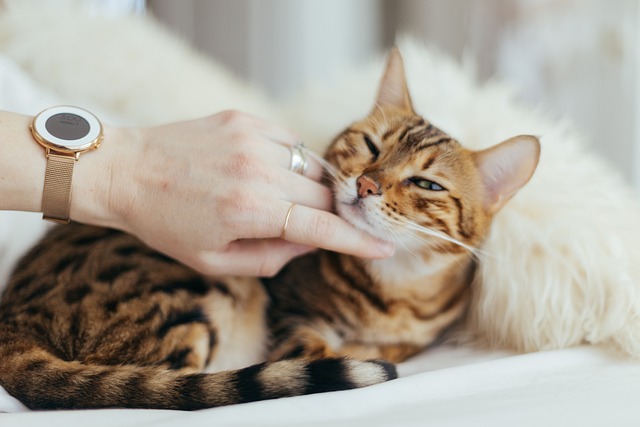
Tired of feeling like your cat's personal item?
Wondering if Whiskers is more possessive than your ex? 😺
Are cats just naturally clingy creatures?
Well, hold on to your catnip, because we're about to dive into the fascinating world of feline ownership.
You're not alone in questioning the depths of your cat's devotion, my friend.
It's a topic that has cat owners scratching their heads (and furniture) in confusion.
But fear not!
Get ready to unravel the enigma of cat possessiveness and learn some purr-fectly practical tips along the way.
Let's unravel this kitty conundrum together, shall we?
Signs of Possessiveness in Cats
Is your cat possessive?
Here's how you can tell:
- You may notice more marking around your house, like spraying or excessive scratching.
- Your furry friend might show possessive behavior towards you, their beloved owner.
- And it goes beyond what you'd consider normal possessiveness.
- They become reliant on you for care and attention.
- Interacting with others becomes a challenge for them; they're just not into it.
- Sometimes, aggression rears its ugly head, whether it's directed at people or other pets.
- Be prepared for some intense kneading or constant meowing.
- Oh, and furniture scratches are their way of saying, "Mine!"
- In response to their possessive feelings, they might have accidents where they shouldn't.
- Changes in their environment or feeling insecure can trigger aggressive behaviors.
But wait, there's more.
Cats also get possessive through jealousy. They demand your undivided attention, approach you when someone else greets you, and insist on being close to you by force.
To forge unbreakable bonds with these feline beings, you need to understand their modes of communication. They express themselves through meowing, purring, trilling, and mewing.
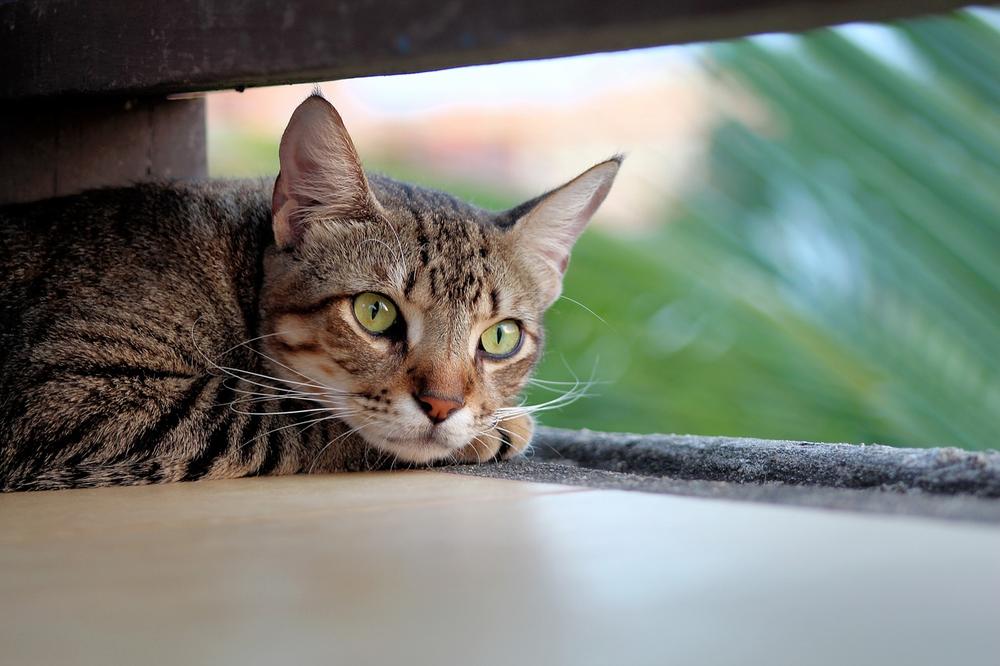
And let's not forget the importance of deciphering their body language, like slow blinks, gentle head bumps, and the position of that majestic tail.
It's the key to earning their trust and unwavering loyalty. 😺
Main points I'll expand upon further down this article:
- Possessiveness in cats is a natural response to stress, not bad behavior.
- Early life experiences shape a cat's behavior, including possessiveness.
- Jealousy may arise from a fear of losing attention or being replaced.
- Cats can feel displaced if their owner stops giving them attention.
- Possessiveness often occurs when cats have to share attention with others.
- Poor socialization during kittenhood can make cats more prone to possessiveness.
- Cats see their owners as equals and show loyalty through communication.
- Introducing new pets or family members should be done gradually.
- Providing a safe space for the cat alone can decrease jealousy.
- Building a bond through social interaction is crucial for managing possessiveness.
And it gets more intriguing.
What can you do to handle possessive behavior in your cat?
In the next section, we will explore practical strategies and expert tips to help you navigate this challenging aspect of feline behavior.
Stick around to discover the secrets that will strengthen your bond with your possessive furball...
Understanding the Reasons Behind Cat Jealousy
If you want to create a happy environment for both you and your cat, you have to understand why they might get jealous. Here are some key things to keep in mind:
- Changes in routine or environment can trigger possessive behavior in cats. So, pay attention to anything that might cause them stress or disrupt their routine.
- Instead of seeing possessiveness as bad behavior, think of it as a response to stress. This way, you can approach the issue with empathy and patience.
- The way a cat behaves is influenced by their early life experiences. Creating a loving and secure environment from the beginning can help minimize future issues with possessiveness.
- Jealousy in cats often stems from a fear of losing attention or being replaced. To alleviate this, give your cat reassurance and make sure they feel loved even when there are other people or animals around.
- Cats who weren't properly socialized as kittens can be more prone to possessiveness and jealousy. Gradually introducing them to new experiences can help them develop healthier ways of coping.
- Cats see their owners as equals and form strong emotional bonds. By communicating effectively and spending quality time together, you can strengthen these bonds and reduce possessive tendencies.
- If possessive behaviors persist or become aggressive, it's important to seek professional advice. A veterinarian or animal behaviorist can provide guidance tailored to your specific situation.
By comprehending the motives behind possessive tendencies and dealing with them, you can establish a contented and harmonious bond with your four-legged companion.
And if you're wondering just how deeply a cat's protective instincts extend, let me tell you about an interesting study I came across in my research.
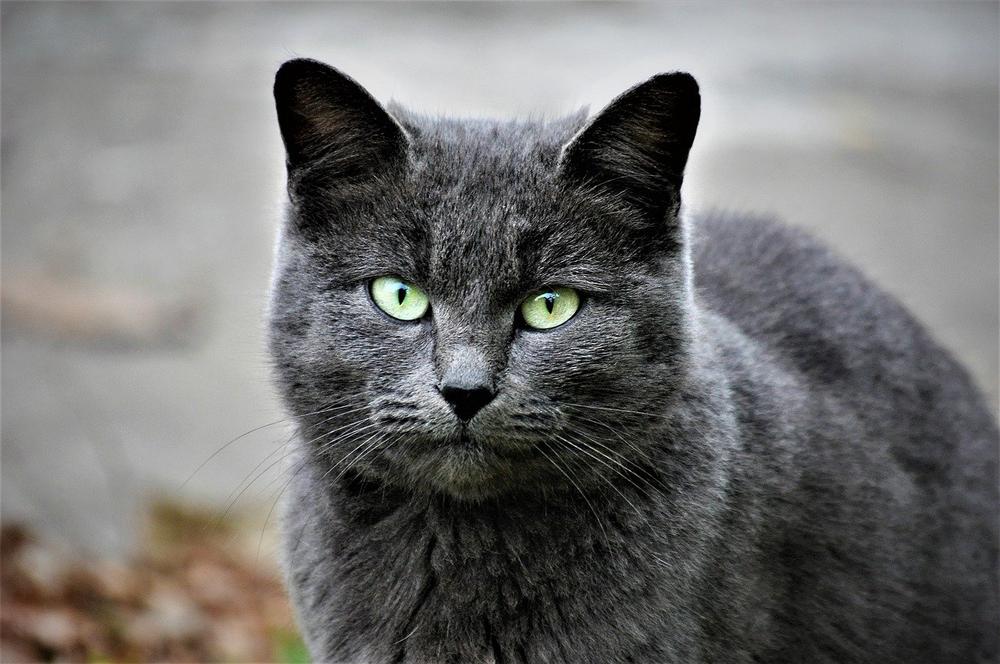
In my blog post, Do Cats Protect Their Owners, I delve into the fascinating realm of feline guardianship.
With insights into their innate sense of loyalty and its potential impact on their behavior, this article is a must-read for those curious about the lengths our beloved cats will go to keep us safe.
Managing Jealousy in Cats: Tips for Recognition and Control
When it comes to dealing with jealousy in cats, you need to take the right steps.
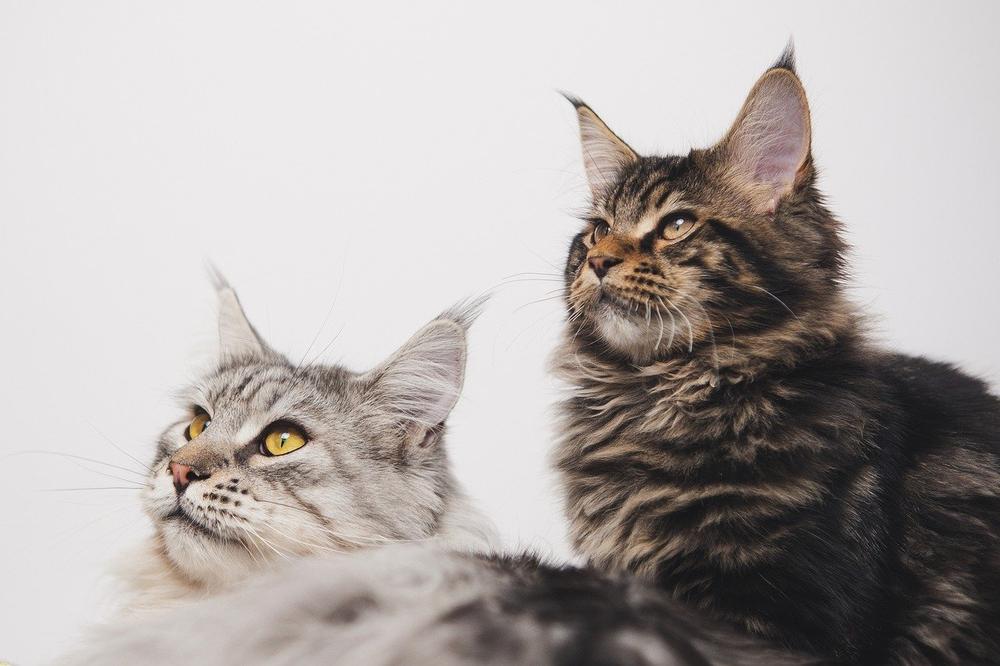
Here's what you can do:
- Give each cat their own time with you. Spend quality one-on-one time with each of them to prevent any jealous feelings.
- If you're bringing a new pet into your home, do it gradually. Slowly introduce them to avoid possessiveness and give your cats time to adjust.
- Stick to a consistent routine for feeding, playtime, and grooming. This will create stability and help with possessive behavior.
- Use positive reinforcement to encourage good behavior. Reward your cats with treats or praise when they act appropriately. This will discourage possessiveness.
- If possessive behavior continues or gets worse, seek help from an animal behaviorist. They can offer valuable advice on how to manage and address these issues effectively.
Maintaining a strong bond with your cats through social interaction and giving them individual attention is crucial in managing possessive behavior.
And now let's dive into the specific needs of Siamese cats and how grooming sessions can play a vital role in managing possessiveness.
Understanding these unique behaviors will help strengthen your bond with your feline friend and address any potential issues effectively...
Handling Possessiveness in Siamese Cats
Regular grooming sessions for Siamese cats build a stronger bond between you and your feline friend, making them less possessive.
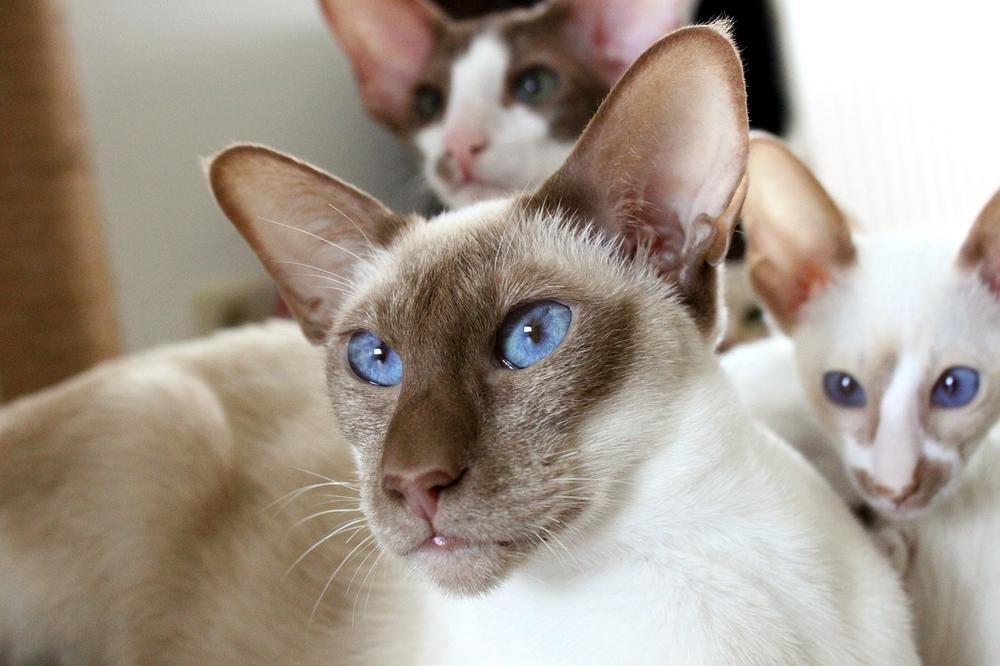
It doesn't matter if your Siamese cat is male or female; they are equally loving and devoted to their human companions.
They will choose you as their person by attentively understanding your needs and preferences. By taking the time to groom them regularly, you not only keep their coat healthy and shiny but also deepen your connection with them.
So grab that brush and show your Siamese cat some tender love and care—it's a win-win situation for both of you.
Managing Overprotective Cats: Dealing with Possessiveness
When dealing with cats that are overly protective, here's what you can do:
- Take it slow when introducing a new cat to the household. Make sure your existing cats feel safe and not threatened by the newcomer.
- Give each cat their own personal space, complete with separate toys, food bowls, water sources, and litter trays.
- Gradually increase positive interactions between the cats and new things using treats or playtime. Reward them for staying calm.
- Make sure kittens have plenty of social time with their mother and littermates for at least 8 weeks. This helps them develop appropriate social skills.
- After vaccinations and deworming, gradually expose cats to other people, cats, and pets. This will help them get used to different smells and situations.
- Give your cats outlets for physical and mental stimulation. Get them scratching posts, interactive toys, and have regular play sessions.
- Use positive reinforcement techniques like clicker training or rewards to reinforce good behavior and build confidence in your cats.
- If you need personalized advice, consult with a professional behaviorist who can help you navigate your specific situation.
By adhering to these instructions, you can significantly diminish possessive tendencies and establish a harmonious setting for both you and your beloved pets.
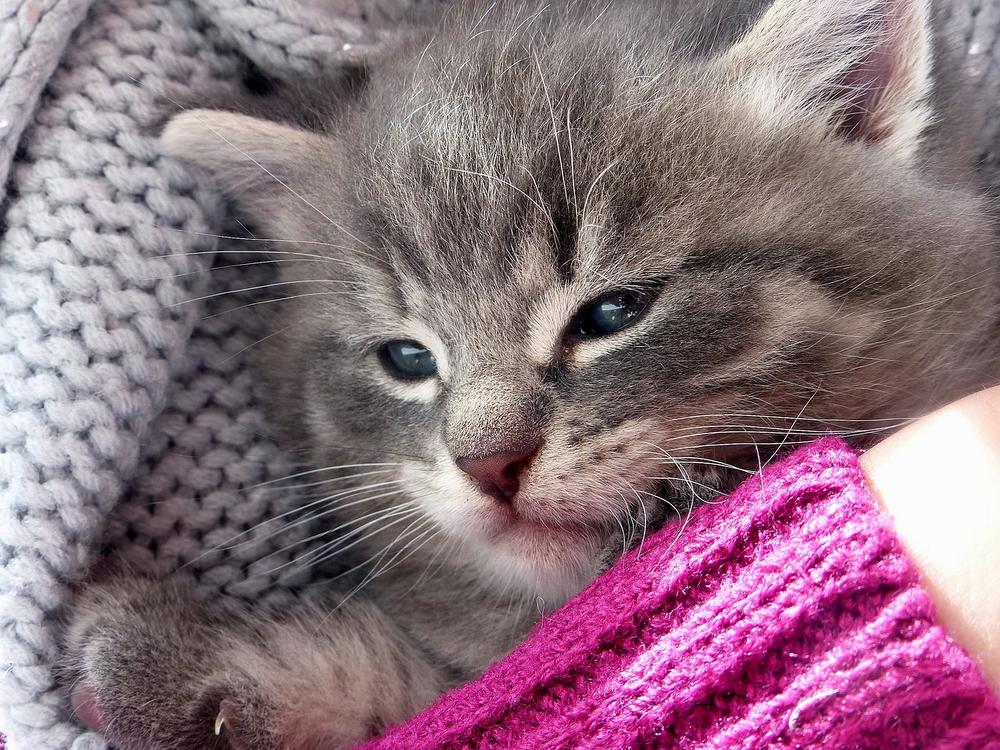
And finally, if you've ever wondered why your cat holds your hand, I've got the answer for you! In my article, Why Does My Cat Hold My Hand, I delve into the possible reasons behind this intriguing behavior.
Understanding and Addressing Cat Anxiety
To help alleviate your cat's anxiety, here are 10 effective strategies to consider:
- Provide vertical space, like shelves or cat trees, for a sense of security.
- Understand that each cat has its own unique personality and background.
- Recognize behaviors that may stem from past trauma, such as possessiveness.
- Offer reassurance and praise to build their confidence.
- Create a peaceful environment with calming scents or music.
- Give your cat designated hiding places or safe spaces.
- Establish a consistent routine to create a sense of stability.
- Use interactive toys or puzzles to engage their mind and relieve stress.
- Consider natural remedies or supplements recommended by your vet.
- Show patience, love, and dedication in building a strong bond.
You can assist your cat in living a more content and calm life by tending to their anxiety and providing them with constant care.
And that wraps up today's article.
If you wish to read more of my useful articles, I recommend you check out some of these: Why Is My Pregnant Cat So Mean and Aggressive, Cat Humps Toys, Do Cats Understand Kisses, and Why My Cat Humps Me
Talk soon,
-Sarah Davis